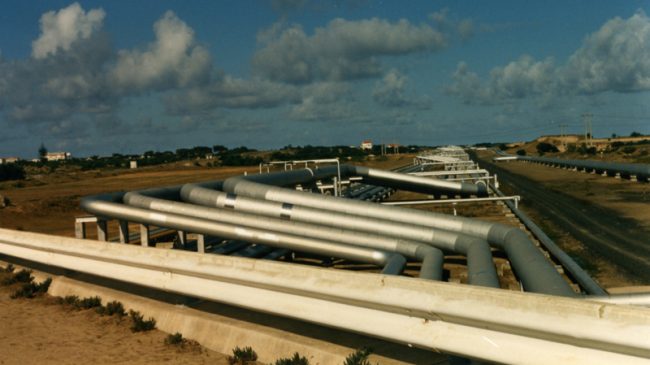Some politicians in California, and people like me who live near railroad tracks, are waking up to the fact that four times as much oil was shipped to California by train over the last year than the previous year. Most of it was heading to refineries here in Southern California. As the oil trains have increased, so have complaints and environmental concerns about them. Rather than responding to calls to restrict these trains and further raise our gasoline prices, however, state officials need to address the need for oil pipelines connecting California with the Midwest.
As oil production in the United States has exploded, shifting us from an oil-importing to an oil-exporting nation, it has created the new problem of getting all that oil from the middle of the country to refineries on the edges of the nation; mainly to California, Texas, Louisiana, New York and New Jersey. Traditionally, oil has moved mostly by pipelines. But in recent years few new pipelines were built thanks in part to strong opposition from environmental activists, so oil trains have picked up most of the slack. This is particularly true in California, where few oil pipelines connect to oilfields east of the Rocky Mountains.
The rail industry claims a 99 percent safety record, but with the rapid increase of oil trains on railroads, concerns about safety are legitimate, as demonstrated by recent severe oil train accidents in North Dakota and Quebec, the latter killing 47 people. A report by the National Transportation Safety Board emphasizes the seemingly obvious, “that major loss of life, property damage and environmental consequences can occur when large volumes of crude oil or other flammable materials are on a train involved in an accident.”
Oil pipelines are far from perfect, with leaks happening more often than oil train accidents. But pipeline spills almost never threaten human lives. Beyond safety, moving oil through pipelines is cheaper and more efficient than transporting it via train, and emits far fewer greenhouse gases.
Yet plans to build new oil pipelines between California and Texas have been scuttled. Environmental activists want to block construction of new pipelines, in part, to reduce the state’s access to oil, thus keeping gas prices high in an effort to reduce greenhouse gas emissions.
Businesses have realized they need to expand oil trains for now, even if more expensive in the long run. Investment is going to new rail terminals in the Central Valley and Mojave Desert to connect the flood of oil trains into California’s internal oil pipeline network. Money is also being spent to expand pipelines in Canada so more oil can be transported by ship to California refineries – a much more expensive option than a direct pipeline, but one that can be done in the current political climate.
It is no surprise in California that a rapid reaction to the growth of oil trains is to regulate, restrict and limit their numbers. Some environmentalists and local officials have called to halt the trains altogether, while Gov. Jerry Brown’s budget proposes a new tax on oil trains to discourage them. Instead of burdensome restrictions and taxes on oil trains, California needs a reasonable balance of cheap and safe oil pipelines and flexible oil trains to connect our refineries to oil supplies.
Policymakers should work quickly to permit some new pipelines with the latest safety technology and practices and thus reduce the waste, emissions and higher prices that come from ill-advised attempts to choke off the state’s access to oil.
Dr. Adrian Moore is vice president at Reason Foundation. This article originally appeared in the Orange County Register.

